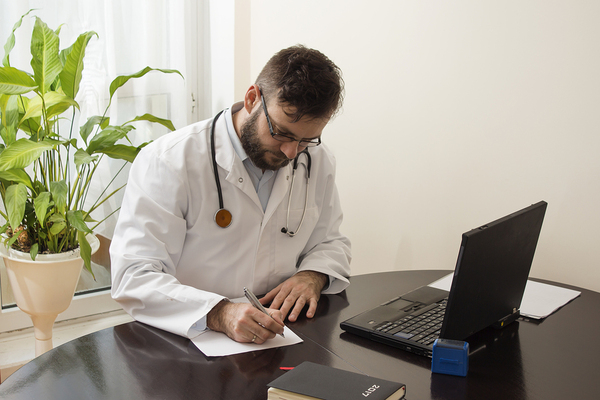The healthcare field is using the digital and information revolutions to innovate and improve care provision.
Interested in the technology news about what the most innovative companies in healthcare are? Fast Company annually picks a list of the World’s Most Innovative Companies. The list is divided by sector.
Here’s a look at the top three Most Innovative Companies in health.

Some innovations utilize technology in offices more fully.
Number 1: One Medical
Think of healthcare providers and patients when you think about healthcare innovation? That’s a natural assumption, but the digital revolution can also assist in sites of healthcare provision and data. That’s the business strategy of Fast Company’s Number 1 innovator in the health sector, One Medical. It works to provide technology and technology services to doctors’ offices to cut costs by as much as 66%, according to the company.
One Medical is growing fast. The number of offices grew to 54 in 2016, 46% above 2015 levels.
Number 2: Apple
Yes, this one has common associations as well: iPhones, iPads, iPods, and Macs. Cutting-edge technology and cool design. But Apple is also a leading innovator in healthcare, primarily in the aggregation and dissemination of big healthcare data, often divided into specific chunks.
So Apple developed CareKit. CareKit is a platform, open-sourced, that allows aggregation and sharing of medical information from patients with healthcare personnel. Consent must be obtained for the sharing.
CareKit was rolled out in March 2016. Since then, a robust slate of apps has been developed for various healthcare conditions. The highly respected Cleveland Clinic developed an app that lets patients record symptoms of asthma. One Drop aids in diabetes management. Iodine helps in depression management.
Number 3: AliveCor
Apple is not the only health innovator using the smartphone and multiple apps to improve healthcare. The Number 3 Fast Company innovator, AliveCor, created an electrocardiogram that can be contained in a smartphone. It finds any abnormal heart rhythms, such as a doctor’s office electrocardiogram does.
The product, Kardia, allows patients to monitor their own EKG results and assess whether results are normal or whether a doctor’s visit is needed. It’s a huge advance for people subject to heart arrhythmias. Arrhythmias can cause stroke and heart failure, and often do not have symptoms.
By November 2016, Kardia had recorded roughly 11 million EKGs, up from 2 million in March 2015.
Last year, the company announced a combination EKG and blood pressure monitor, to be called Kardia Band and slated for the Apple Watch. This is the first product to have a Food and Drug Administration approved blood pressure device and EKG combined.
Intriguingly, AliveCor is also teaming up with the Mayo Clinic to attempt to shed more light on health indicators in its EKG data, using technology to mine and cluster the data.
Healthcare is a site of innovation. These companies, using digital methods, are leading the pack in innovating in the healthcare space.
